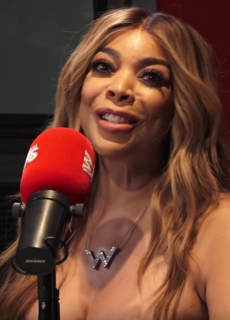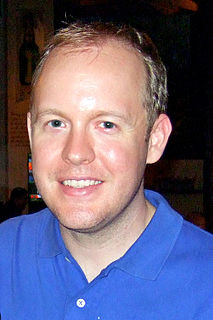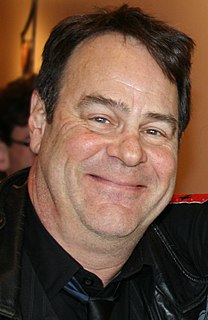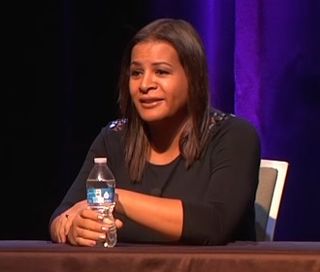A Quote by Soledad O'Brien
People are interested in things not necessarily covered by the mainstream media, so they download things online. The categories are growing because people find out that they're not able to get information about stories that are of interest to them on the evening news.
Related Quotes
I don't know if it's possible for anyone to really have that level of a voice anymore because our media is so diluted and parsed out. You know people kind of go for the news and information that they want as opposed to picking up a paper and seeing what catches their eye. It's a very stark difference and there is a few stories that end up going wide and everybody hears about them, but they're usually salacious celebrity stuff that is not about substance or it's the latest disaster and it's kind of covered in a way that is just trying to get eyeballs on the screen.
Americans are interested because they are open-minded. They have an education system that teaches them to find out for themselves why things are the way they are. Open-minded people tend to be interested in Buddhism because Buddha urged people to investigate things - he didn't just command them to believe.
I think half the people who get married now have met online. If I think about all the people in my life who married - they met online, online, online. And it makes sense if you think about it, because you fill out this form of 35 things that really define you and - bam - look, you've got two people who match. It works.
The media are very dishonest. In fact, in covering my comments, the dishonest media did not explain that I called the fake news the enemy of the people - the fake news. They dropped off the word "fake." And all of the sudden, the story became, the media is the enemy. They take the word "fake" out, and now I'm saying, oh, no, this is no good. But that's the way they are. So I'm not against the media. I'm not against the press. I don't mind bad stories if I deserve them. And I tell you, I love good stories, but we won't - I don't get too many of them.
I think the beauty of the Internet is that it's giving a lot of people the opportunity to reach people around the world that they never would have been able to, and for people to tell their own stories where they don't see themselves reflected in mainstream media, or the media is misrepresenting the truth, right.
The issues which mattered to me as an activist, mainly things like prison reform and AIDS, have less of a chance of getting covered on my show than things I don't have a personal interest in. It's because I don't trust my antenna about being a good storyteller on those subjects, because I know a lot and therefore lose touch with what the average person might find interesting about them.
You have to get autistic kids out and expose them to things, but do this without any surprises, so they know what to expect. You have to find skilled mentors to teach them things. For me, it was an aunt, and it was my science teacher. You need to find the things they're interested in and good at and expand on this.
Mainstream media can be controlled, right. Because messaging from mainstream comes from that particular news outlet or whatever. Then you have the top people driving that messaging, and then that's what it is, right? Social media can really stir up a higher level of panic. If you think about it, it's not controlled.
When I was in college, I remember thinking to myself, this internet thing is awesome because you can look up anything you want, you can read news, you can download music, you can watch movies, you can find information on Google, you can get reference material on Wikipedia, except the thing that is most important to humans, which is other people, was not there.
Media is set up to give information to the people - at least that's what it says. But we all know in the U.S. that media is a capitalistic system, people are getting paid to write things, they have bosses and editors, and they have bosses, and they put pressure on people to write intriguing stories that catch the eye.
































